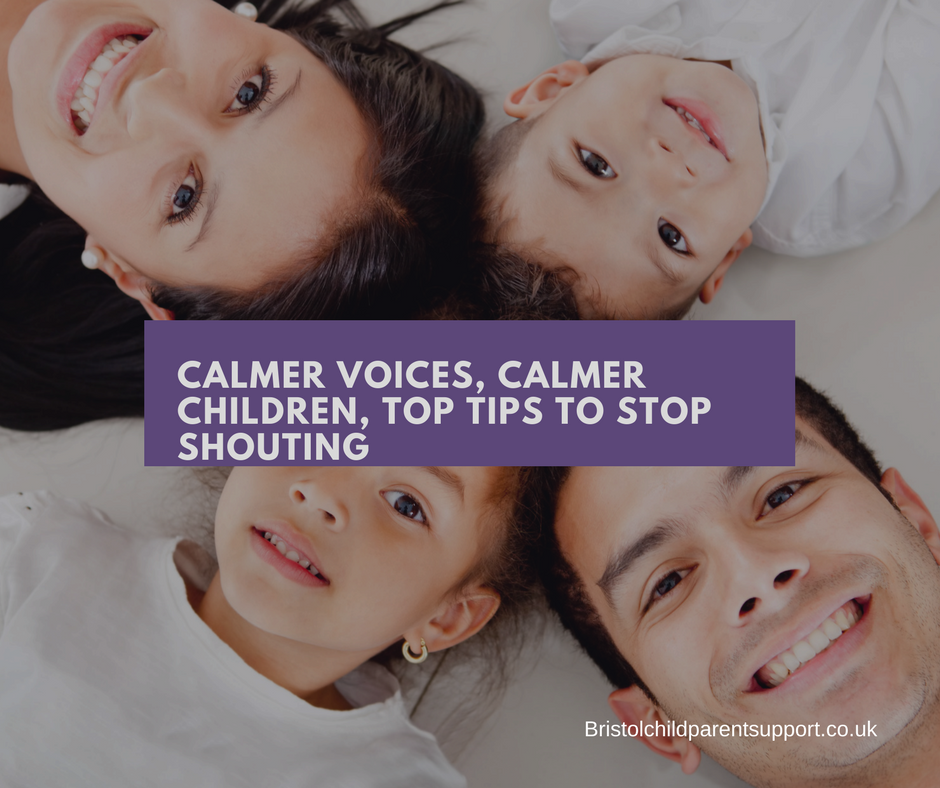We all want calmer children, don’t we? How many times have you shouted/raised your voice in 2018? Don’t worry, let it go, but here are some ideas to help you now.
Prior to having children, I used to witness my friends with their children and used to think I was never going to shout at my children; well, suffice to say there were quite a few occasions when I would “lose my rag” so to speak.
I guess there were some situations that did not really warrant the shouting. They were not at immediate risk or harm so
Why is it important to be clear and firm without shouting?
- When we shout, it often detracts from the very message you want to put across to our children.
- It often escalates the anger or frustration and could lead to further difficult behaviour in both you and your child.
- Your children don’t take it seriously, as they tell you they have heard it all before.
- It’s not great for a child’s self-esteem.
- You feel guilty and bad and then may overcompensate to manage “the guilt”.
Tips for you now:
1. Identify what are your family rules, what you are going to sweat, and what you are let go. Choose three important ones and work at one at a time.
2. Identify key problem times. Going to bed and leaving home in the mornings are times most families struggle with. Sit down together at a family meeting or an alternate quiet family time. Implement a graded, step-by-step plan. At the bottom of my page, you can download my ladder of success to help with this.
3. Identify triggers, examples are:
- Hunger
- Parental Stress/fear/despair
- Tiredness
- Sibling difficulties
- Age, not being old enough to be socially aware.
4. Understand, empathise and explore the meaning of the behaviour. When you understand your child, you are more likely to be more patient. It does require you to think differently, remember there is no absolute truth, you could reflect on:
- Why is my child doing that?
- What did he think about what he did?
- How did this escalate?
- Am I open to understanding his perspective?
5. Disengage, tell them that you are going to take five minutes as you are beginning to get angry and note you will return when you have calmed down. This is good modelling. Sometimes due to “the anger”, we can often escalate the situation by thinking:
 Well, I am going to show him, I am the one in control and I am going to stand here until he gets what I am saying.
Well, I am going to show him, I am the one in control and I am going to stand here until he gets what I am saying.
6. Understand your Amygdala, this is the part of our brain that is our “threat response system”, does yours go quickly or is it a slow burner? Try some mindfulness and breathe and count to 10 at the moment.
7. Own up to your feelings and try to do it as soon as you can. Say something like, even though I lost my temper, I still love you and if you can give them a hug. We call this “rupture and repair” in therapy. When there is a rupture in the connection with your child, it’s always important for them to know that it’s ok afterward, saying sorry, owning up to your feelings is going to help with this. This is the “repair part”
All this is very easy to say, it’s going to happen, and always say sorry. This gives our children permission to make mistakes and learn from them. Good luck. With Love Catherine, please let me know or comment what your tips are?



